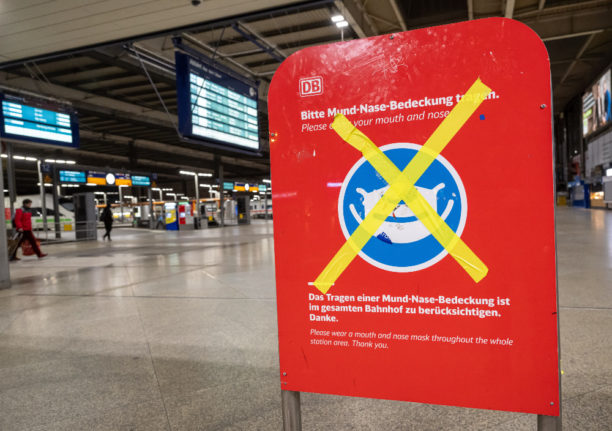Germany reintroduced a ‘home office’ obligation in November 2021 to battle rising Covid rates.
Throughout winter, employers have had to offer employees the chance to work from home if operational reasons allowed it.
There are also strict rules for those people going into the office: they are expected to carry proof of Covid vaccination, recovery or a negative Covid test if they want to or have to work on-site (known as the 3G rule).
However, from March 20th, Germany’s far-reaching Covid measures – including workplace rules – are set to be lifted.
READ ALSO: Will Germany lift its Covid restrictions amid rising infections?
What happens after March 20th?
A new draft by the Labour Ministry gives us an idea of what will happen after this date.
And it has emerged that despite the law being lifted, Covid safety plans will still have to be in place.
The draft proposal states that employers should assess the risk posed by Covid-19 and define appropriate measures in a company safety concept.
According to the German government, employers should decide what kind of safeguards against infections they should have in place – such as offering employees regular Covid-19 tests, providing protective masks or asking employees to work from home.

Companies will also have to decide for themselves on the basic measures in the workplace, such as distance requirements.
The draft states that employers should take into account the regional incidence of infection.
Labour Minister Hubertus Heil said: “We must continue to work together to ensure that the workplace does not become a place of infection. Therefore, basic protective measures should be maintained here as well.”
The regulation is set to be decided on by the federal cabinet on Wednesday.
What’s the reaction?
Perhaps unsurprisingly, bosses have welcomed more flexible rules and the planned lifting of the obligation to work from home. However, they said safeguard options were important.
“The flexible measures now planned for companies are necessary and sensible,” said Rainer Dulger, president of the employers’ association.
“Even after the abolition of the legal 3G access regulation and the removal of the obligation to work remotely, businesses will continue to maintain effective protective measures.”
The draft regulation states there will be no legal obligation for people to work from home, but that employers have the option to allow ‘home office’.
Dulger said that remote work would continue to be used in companies without the law in place.
And he took a swipe at the Labour Ministry’s plans to bring in laws that will mean employers will have to allow employees to work from home in future – unless remote working is impossible for logistical reasons calling the proposals “pointless”.
The German Trade Union Confederation (DGB), meanwhile, has warned against neglecting protection against Covid infections in the workplace.
“Occupational health and safety must not become a private matter for employees from the end of March,” said DGB Executive Board member Anja Piel to the newspapers of the Funke Mediengruppe.
“The pandemic is simply not over yet and that is why home office – where it is possible – remains a useful instrument to limit contacts and therefore the risk of infection,” she said.
Employees “must continue to be protected at the workplace” with masks indoors and by close monitoring of the incidence of infection through regular tests, said Piel, adding: “The costs for this should be borne by the employers.”



 Please whitelist us to continue reading.
Please whitelist us to continue reading.
Member comments